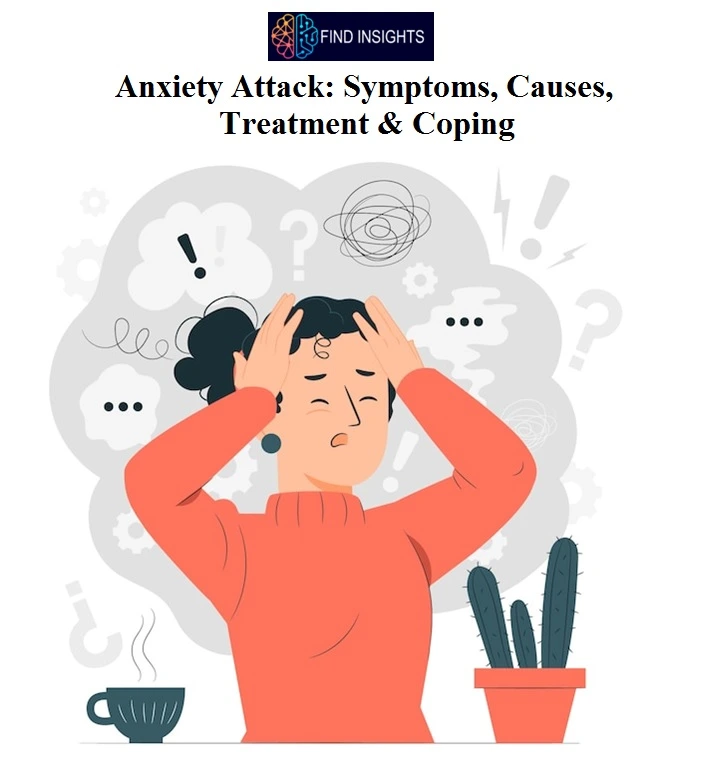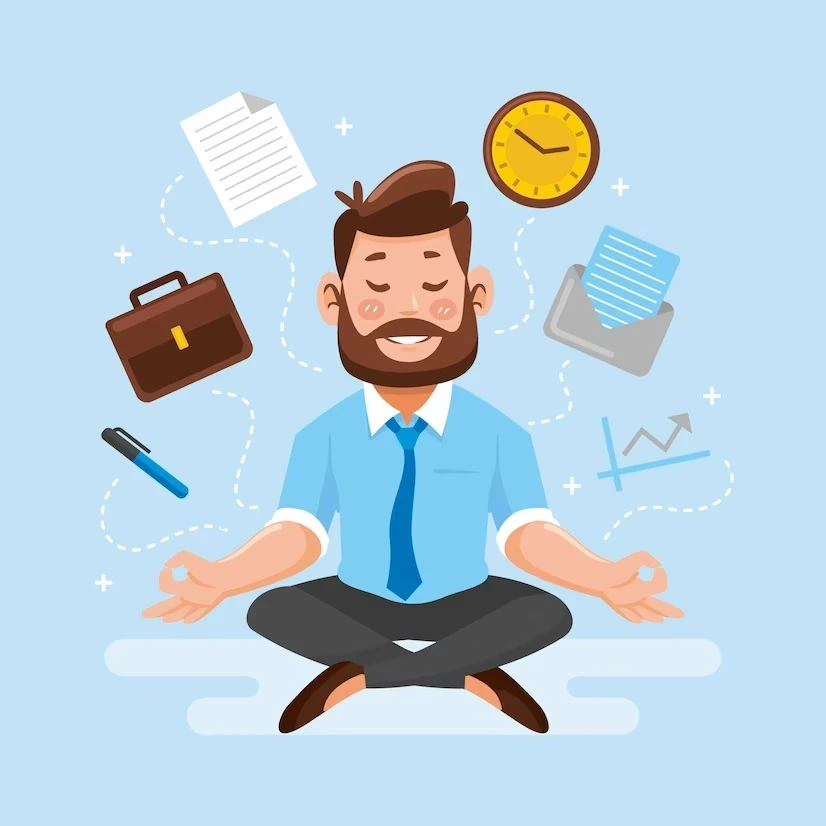
Anxiety Attack:
Anxiety can be a challenging condition that affects millions of people worldwide. It can manifest in various forms, one of which is an anxiety attack. In this comprehensive guide, we will delve into what anxiety attacks are, their symptoms, causes, coping strategies, prevention techniques, and ways to support others going through anxiety attack.
1. Introduction – Anxiety Attack
Anxiety is a natural response to stress and potential threats, but for some individuals, it can become overwhelming and debilitating. An anxiety attack, also known as a panic attack, is an intense episode of fear or distress that can be triggered by various factors. These attacks can be frightening and may significantly impact an individual’s quality of life. However, with the right understanding and coping mechanisms, it is possible to manage and overcome anxiety attack effectively.
2. Understanding Anxiety Attack
2.1 What is an Anxiety Attack?
An anxiety attack is a sudden and overwhelming surge of fear, anxiety, or panic that typically lasts for a relatively short period. During an attack, individuals may experience a range of physical, emotional, and cognitive symptoms. These symptoms can vary from person to person but often include heart palpitations, shortness of breath, trembling, chest pain, a sense of impending doom, and a fear of losing control.
2.2 Common Symptoms of an Anxiety Attack
Anxiety attacks can present a wide range of symptoms, both physical and emotional. Physical symptoms may include rapid heartbeat, sweating, dizziness, hot flashes or chills, nausea, and a sensation of choking. Emotionally, individuals may feel intense fear, a sense of impending doom, irritability, restlessness, and a strong desire to escape the situation.
2.3 Causes of Anxiety Attacks
Anxiety attacks can be triggered by various factors, such as high-stress situations, traumatic experiences, phobias, certain medications, and underlying mental health conditions like generalized anxiety disorder (GAD) or post-traumatic stress disorder (PTSD). It is essential to identify the root causes of anxiety attacks to develop effective coping strategies and seek appropriate treatment.
3. Coping with Anxiety Attacks

Managing anxiety attacks involves implementing effective coping strategies to alleviate symptoms and regain a sense of control. Here are some techniques that can help individuals cope during an anxiety attack:
3.1 Breathing Exercises and Relaxation Techniques
Deep breathing exercises, such as diaphragmatic breathing or box breathing, can help calm the body and mind during an anxiety attack. Progressive muscle relaxation, meditation, and mindfulness techniques are also beneficial in reducing stress levels and promoting relaxation.
3.2 Seeking Professional Help
In severe cases, it is crucial to seek professional help from a mental health expert. Therapies like cognitive-behavioral therapy (CBT) or exposure therapy can be highly effective in treating anxiety disorders. Additionally, medications prescribed by a psychiatrist may provide relief for those with chronic or severe anxiety.
3.3 Lifestyle Changes for Anxiety Management
Making positive lifestyle changes can significantly impact anxiety management. Regular exercise, maintaining a healthy diet, getting sufficient sleep, reducing caffeine and alcohol consumption, and avoiding smoking are all factors that contribute to overall well-being and can help manage anxiety.
4. Tips for Preventing Anxiety Attacks
While it may not be possible to prevent anxiety attacks entirely, certain strategies can minimize their occurrence. Here are some helpful tips for preventing anxiety attacks:
4.1 Stress Management
Developing effective stress management techniques, such as practicing time management, setting boundaries, engaging in hobbies, and prioritizing self-care, can reduce the likelihood of anxiety attacks triggered by stress.
4.2 Healthy Lifestyle Habits
Maintaining a healthy lifestyle is crucial for managing anxiety. Regular exercise releases endorphins, which improve mood and reduce stress. A balanced diet, rich in whole grains, fruits, and vegetables, can support overall well-being. Sufficient sleep is also essential for mental and emotional health.
4.3 Self-Care Practices
Engaging in self-care practices is essential for individuals with anxiety disorders. This can involve activities such as taking breaks, practicing relaxation techniques, journaling, engaging in creative outlets, and nurturing supportive relationships.
5. Supporting Others with Anxiety Attacks
Understanding how to support someone experiencing an anxiety attack is crucial for their well-being. Here are some ways to provide assistance during such episodes:
5.1 How to Help Someone During an Anxiety Attack
If someone you know is experiencing an anxiety attack, it is essential to remain calm and reassure them. Encourage them to focus on their breathing and offer a safe and quiet environment. Avoid minimizing their feelings and provide empathetic support.
5.2 Creating a Supportive Environment
Creating a supportive environment for individuals with anxiety disorders can significantly impact their overall well-being. Being understanding, patient, and non-judgmental, educating oneself about anxiety, and fostering open communication can make a significant difference.
6. Conclusion
Anxiety attacks can be overwhelming, but with the right knowledge and coping strategies, they can be managed effectively. By understanding the nature of anxiety attacks, implementing appropriate coping mechanisms, and seeking support, individuals can regain control over their lives. Remember, everyone’s journey is unique, so it’s important to find strategies that work best for you. With patience, self-care, and professional guidance if necessary, individuals can overcome anxiety attacks and lead fulfilling lives.
7. FAQs
7.1 What is the difference between an anxiety attack and a panic attack?
Anxiety attacks and panic attacks are often used interchangeably, but they can have slight differences. While anxiety attacks can be triggered by specific stressors or fears, panic attacks typically occur suddenly and unexpectedly. The intensity and duration of symptoms may also vary between the two.
7.2 Can anxiety attacks be cured?
Anxiety attacks can be effectively managed and reduced with the right treatment and coping strategies. While there may not be a definitive “cure,” individuals can significantly improve their quality of life and reduce the frequency and intensity of anxiety attacks.
7.3 How long do anxiety attacks last?
The duration of an anxiety attack can vary from person to person. Some may experience attacks that last for a few minutes, while others may have longer episodes that can extend for hours. It is essential to remember that the duration of an attack does not diminish its impact on the individual.
7.4 Are anxiety attacks hereditary?
There is evidence to suggest that anxiety disorders can have a genetic component, making some individuals more predisposed to experiencing anxiety attacks. However, genetics alone do not determine the occurrence of anxiety attacks, as environmental factors and life experiences also play a significant role.
7.5 Is it normal to have occasional anxiety attacks?
Occasional anxiety attacks can be a normal response to stressful situations or life events. However, if the frequency or intensity of these attacks begins to significantly interfere with daily functioning, it may be beneficial to seek professional help for appropriate management and support.
LIKE WHAT YOU’RE READING?
CHECK OUT SOME OF OUR OTHER GREAT CONTENT HERE:
- HOW TO MAINTAIN HEALTHY LIFESTYLE?
- 10 TIPS ON HEALTHY LIFESTYLE
- BEST MOTIVATIONAL QUOTE FOR SUCCESS IN LIFE
- HOW TO REDUCE FUEL CONSUMPTION?
- LEARN THE ART OF TIME MANAGEMENT
- DEVELOPING EMOTIONAL INTELLIGENCE
- LEARN PROBLEM SOLVING SKILLS
- BEST BOOKS ABOUT SWAMI VIVEKANANDA
- 20 BEST QUOTES FOR A HEALTHY LIFESTYLE
- WHAT ARE BENEFITS OF RUNNING?
- WHAT ARE THE BENEFITS OF GREEN TEA?
- BENEFITS OF FENUGREEK FOR WOMEN: A COMPREHENSIVE GUIDE


